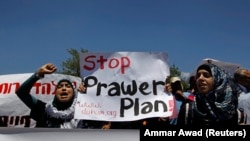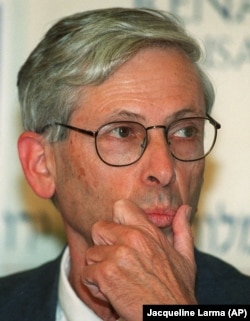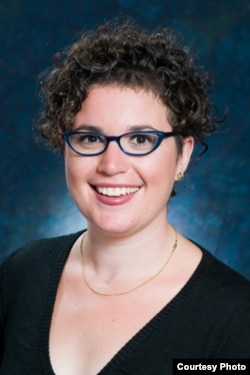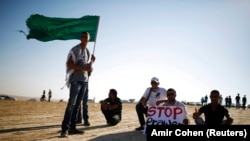As Israelis and Palestinians return to peace talks this week, most of the world will be focused on whether the Palestinians will finally realize a state of their own. But inside Israel, emotions are running high over another land rights issue, which may have a less happy outcome: What to do with the Bedouin population of Israel’s southern Negev desert.
The debate revolves around the controversial Prawer-Begin bill, which calls for evicting tens of thousands of Bedouins from haphazard settlements taking up some 200,000 acres to state-established townships.
Proponents of the bill, which passed the first of three required Knesset readings in late June, say it is a practical blueprint for developing the Negev and advancing educational and job opportunities for Jews and Bedouins alike. But opponents say if the bill becomes law, the Bedouin way of life will be lost forever.
Background
The nomadic Bedouin migrated from the Arabian Peninsula to the Negev desert centuries ago and settled in compounds and villages organized under a traditional system of collective land ownership and rights to water and grazing areas that they say the earlier Ottomans and the British governments recognized.
When Israel declared itself a state in 1948, as many as 90,000 Bedouins were working as farmers and herders in the Negev. During the 1948 war, the great majority were driven out or became refugees. In the decades since, many of those who remained have been dispossessed of their land and relocated to seven towns built by Israel to house them. But still others refused to move from their settlements, claiming ownership to the land. Israel regards them as squatters and does not provide them with water, sewage, electricity, roads, schools or other municipal services.
The Plan
"The Prawer-Begin Plan for the Arrangement of Bedouin-Palestinian Settlement in the Negev" grew out of a 2008 inquiry into disputed Bedouin land claims in the Negev. The final legislation, submitted to the Knesset by former member Binyamin Zeev “Benny” Begin, calls for relocating about 30 percent of Bedouins to Israeli-approved towns and offering them either financial or land compensation. Those who do not comply before a set deadline will be forced to move without compensation.
In a July 8 conference call to the U.S.-based Interagency Task Force on Israeli Arab Issues, Begin said Israel has allocated $2.75 billion over the next decade to develop the Negev desert for the benefit of Jews and Bedouins alike.
“I think it is also agreed that what is needed in order to include the Bedouin in the Negev prosperity is the development of their communities -- villages, towns, etc.,” he said. “It is also agreed that the present reality, in which Bedouin live in the Negev, actually, the poorest group in Israel, is intolerable.”
Begin acknowledges the controversy, but says he knows of few Bedouin who actually oppose the bill and he accuses NGOs and rights groups of politicizing the issue.
View Unrecognized Bedouin-Arab Villages , Newly Recognized Villages and Planed Towns in the Negev-Naqab, Israel. By Negev Coexistence Forum for Civil Equality in a larger map
Wide opposition
Critics say the bill is discriminatory. Amir Abo Kweder is the Projects Coordinator for the Negev Coexistence Forum for Civil Equality. He says the Bedouin had no say in drafting the bill.
“The indigenous Arab Bedouins in the Negev demand the recognition of their villages and that they be consulted in shaping a future that takes into account the need to preserve their social fabric and their agricultural way of life,” he said.
Kweder also says that if approved, the plan will cause nothing but misery for an already marginalized community.
“The displacement of over than 40,000 people, the eviction of tens of villages and confiscation of 200,000 acres [80,937 hectares] wouldn't bring anything but more misery, injustice and avoidable tensions in a country desperate for peace and calm,” he said.
While plan proponents say the Bedouin would live far more comfortably in towns, Abo Kweder cites figures from the Israeli Central Bureau of Statistics that demonstrate that even the recognized Bedouin towns such as Rahat, Tel Sheva and Segev Shalom rank lowest on Israel’s socio-economic ladder.
“Israeli policy is tending toward what might be described as ‘forced impoverishment,’” Abo Kweder said. “By…concentrating the Bedouin community in ghettos, they hope that this might bring people to rethink having children -- a false assumption that keeps the status quo.”
Debate on the bill became so heated in the Knesset that Arab members tore up their copies, and they are urging the Bedouin to disobey the law if it passes. Amnesty International has called the bill “discriminatory,” and the United Nations High Commissioner for Human Rights has urged Israel to reconsider.
The debate has now spread to U.S. Jewish groups, the bulk of which oppose the bill.
Rabbi Alissa Wise, Director of Campaigns at the US-based advocacy group Jewish Voice for Peace, says the Prawer plan is an effort to “Judaize” the Negev Desert and erase the Bedouins’ traditional way of life.
“It may not be how Mr. Begin wants to live. It may not be the way you or I might want to live. But it’s the way that these folks choose to live,” Wise said of the Bedouin.
In the end, she says, it’s a moral crisis that begs the question of how Israel can straddle being both a Jewish state and a democracy.
PHOTOGALLERY: The Negev Bedouins
As many 200,000 Bedouins live in Israel's Negev Desert, all of them citizens and most of them concentrated in an area around the city of Beersheva. Granted Israeli citizenship in the 1950's, they lived under military rule until the 1960's and have since resisted government attempts to move them into seven Israeli-built towns. VOA offers this glimpse of the Bedouin presence in the Negev through the years.







